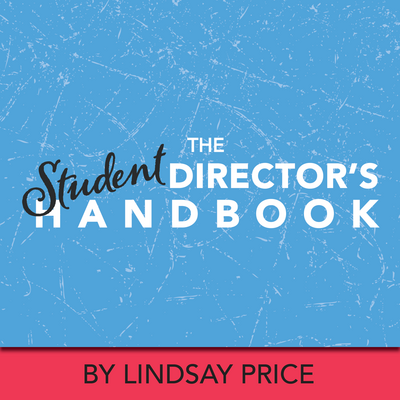10 Tips from Do-It-All Directors
We recorded a podcast featuring 9 teachers from all over the country, in both middle school and high school programs, to find out what makes them able to do it all when directing a play.
Here are 10 of their best tips:
1. Build a program that allows students to develop responsibility and grow their skills.
“I give a lot of the responsibility to the students. When we get ready to move our show onto the stage from the shop, kids each have a specific task to do. And they’ve kind of come up in the ranks so they’ve earned that responsibility and they’re very competent, very hard-working, and very talented. I do leave the majority of it up to them. That helps me a lot because it frees me up to be more of a director than someone who’s in the trenches backstage.”
2. Have patience.
“Just have patience that, in the end, the result is most of the time going to be excellent: the kids are going to be excited, the parents are going to be happy, and the school system and the community are going to benefit. You know, the show doesn’t have to be perfect. We’re going to miss sound cues. Sometimes, the light board is not going to come on. Whatever the situation, you’ve just got to be a little patient and a little bit flexible and just proud that the kids get the opportunity even if every show is not to perfection.”
3. Plan carefully and well in advance.
“I always make sure that I’ve got my season picked out at least by June of the previous year. That allows me to spend a good deal of the summer planning. It also allows me to give roles to students and that’s been a huge asset– training kids. “Hey, Noah, we’re doing these shows next year and I need you to be the sound designer so I need you to start researching.” Being able to give different roles to students, give them the time to work on it, and then as well as for me to come up with, “Okay, we’re going to build this so we need that, that, and that.” I try to set up our rehearsal schedule as early in advance as possible.”
4. Pick one thing and do it well.
“Choose one thing to learn each year and really concentrate on it in your production. I tried to do everything and it just was very overwhelming. I was way too scattered on my first production, to have everything at the level that I wanted it to be at. I know that in maybe five years I will have it at a level that is a little bit more professional, but I’m just going to have to really concentrate on studying one area each year and work on that. Then, that’ll carry through to the next year and I will pick another area.”
5. Set high expectations for your students.
“I ask them (my students) to be little bit more mature and, you know, if I run into something, I have to say to them, “Guys, if you can’t help me do this, we can’t do this.” So, I just really put it out there for them and they really step it up , so I’m pretty lucky.”
6. Don’t give up.
“Eventually, it gets better. You find things that work. A lot of times you fail and a lot of times you make mistakes. But that’s how we learn and that’s how we grow as educators and directors. Don’t give up because there are times that it’s hard and there are times that you just feel like you want to throw in the towel and you think to yourself, “What is this for?” But then, on those opening nights, when those kids are standing onstage taking their bows and the audience is standing and giving them a standing ovation–that’s what it’s for. It’s for them.”
7. Use recycled materials.
“One year, I used all recycled materials for every piece of scenery. We had to have a great big wall that got knocked down in the middle of a particular play. We just asked people to bring in their garbage boxes and we used craft paper that had been used to cover the tables in the art room and we covered them all with that and then we wrote graffiti on them. And so, the whole set was this big recycled project.”
8. Involve the parent community with specific tasks.
“I have found that the parents of my students and cast members are not unwilling to become involved. It’s that they literally don’t know what to do.
I think that the first and foremost step should be communicating with them the exact jobs that are needed. Be as specific as you can: “We need somebody who is skilled with carpentry to volunteer some time–any time you have–to help us build some acting blocks or to build some canvas flats for us.” Listing off as specifically as possible what is needed is an important element. I think what winds up happening is you start to develop a culture that’s sort of (for lack of a better term) an underground culture of knowledge of what’s needed.”
9. Use a contract.
“It’s in the student contract that the parents actually have to contribute to the production and that helps take some of that stress of actually getting it all done off of me. We try to offer enough different kinds of jobs, like bringing water backstage for the kids. That’s not something that requires a whole lot of time, but it’s time that somebody has to take, and it helps out the production.”
10. Count on your students.
“When people are feeling the struggle, I think that the answer is always right in front of you–to use your students and to give them responsibility. What a wonderful teaching moment!”
Related Articles
The Student Director's Handbook
by Lindsay Price
Help students take their show from first audition to opening night with The Student Director’s Handbook. This easy-to-use ebook is full of guidelines, tips and templates designed to help students create a vision, circumvent problems and organize rehearsals on their way to a successful production.
The Rehearsal Companion
by Kerry Hishon
You’ve chosen the play, paid the royalties, done the script analysis, held your auditions, and cast the show. Tomorrow is the first rehearsal. Are you ready? Really ready? The Rehearsal Companion can help!





